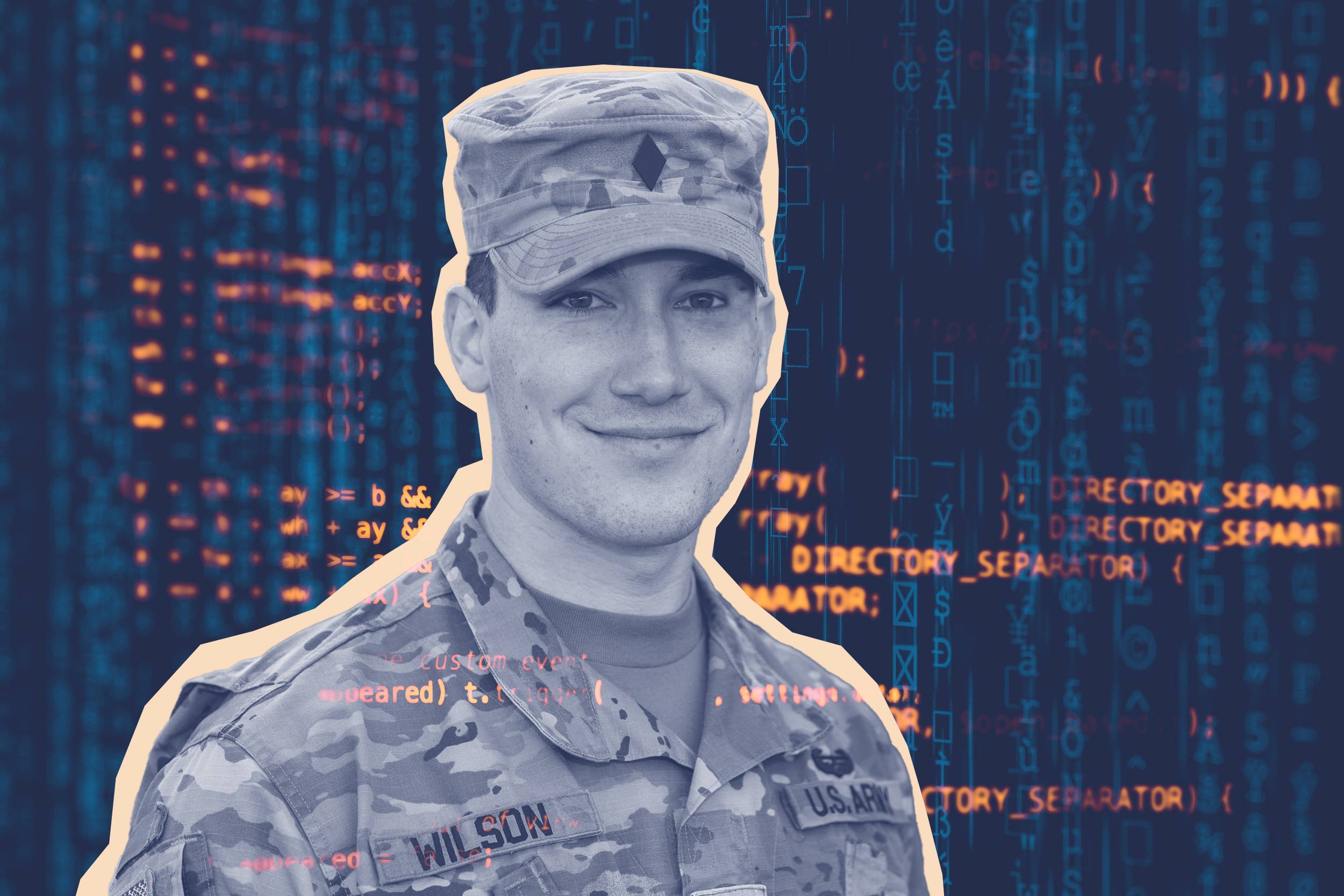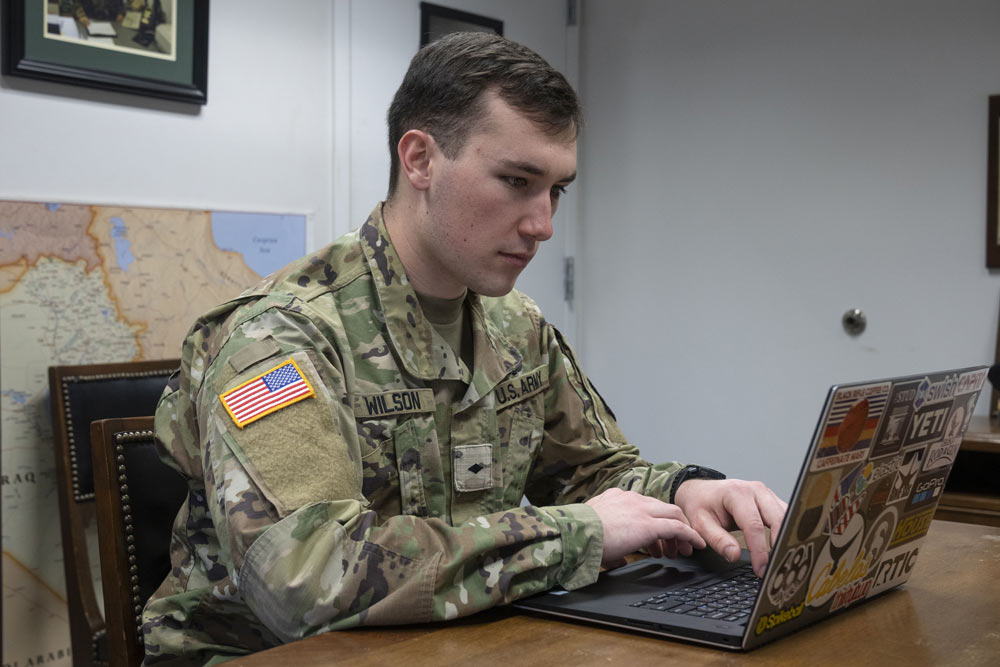After taking computer science classes in high school, Wilson pursued the subject at UVA.
“I didn’t know that cyberwarfare was a thing when I joined ROTC, and I learned about it after the fact,” Wilson said. “It’s a relatively new branch, less than a decade old. Everything is still developing, and as I heard more about it, I became interested. I really love computer science and coding, taking some cool classes on hacking and other things. I really enjoy that breaking things is a lot easier than building them.”
Wilson joined ROTC, continuing his family‘s military tradition.
“My grandfather served in Vietnam and retired from the Army after more than 20 years of service,” Wilson said. “My father commissioned from Virginia Military Institute and spent 10 years in the Army as an officer in the Corps of Engineers.”
Wilson said he, too, wanted to be part of something bigger than himself.
“ROTC pushes me not only to do hard things, but to do new things,” he said. “Where else will I ever get the chance to rappel out of a Black Hawk helicopter again?”
The Cyber Leaders Conference introduced Wilson to his peers in person.
“It was the Class of 2024 ROTC cadets and West Point cadets together to meet each other, because those are the people with whom I’m going to work for at least five years,” Wilson said. “We got to network and hear from active-duty officers, warrant officers and non-commissioned officers in the cyber branch who fill a variety of roles. It was probably the only time all these people are ever going to be in the same room at one time again.”
At the conference, Wilson was surprised by people’s diligence.
“Everybody I talked to on the active-duty side of things right now is passionate about their job,” Wilson said. “There are several different roles you can fill within cyber branch. Cyber is a bit unique in the Army because you have guys who develop code, guys who are just general cyber officers and then cyber electronic warfare officers. Those guys are more about jamming and disrupting signals and that kind of thing.”
He found the work serious and intense.
“Sometimes you’ll have breaks, but there are guys out there who are talking about working 18-hour days, seven days straight,” Wilson said. “Because whatever operation that we’re working on, it’s just like what is a normal week for most people. And these guys are basically sleeping in the office to get this done.”
Lt. Col. Elizabeth Eaton-Ferenzi, commander of the UVA Army ROTC Cavalier Battalion, called Wilson a stellar performer in academics, leadership, physical fitness and volunteerism.
“His leadership approach is mature beyond his years,” Eaton-Ferenzi said. “He cares deeply about the members of the Cavalier Battalion, which is best illustrated by the time and engagement he invests in the program each week.”
Eaton-Ferenzi said the cyber branch helps ensure U.S. forces maintain an upper hand in the digital realm.
“Cyber is an incredibly important branch of the Army and continues to expand its role in the complex and multi-domain environments we find ourselves in with adversaries, primarily through cyberspace operations, electromagnetic warfare and information operations,” Eaton-Ferenzi said. “Connor couldn’t be a better selection for this prestigious and challenging branch. He will make immediate impacts given his academic major, his participation in various cyber competitions and the internships he’s been a part of over the years, and most importantly his leadership attributes.”
While Wilson’s modern battlefield is a computer screen, he sees greater stakes.
“U.S. Army Cyber Command engages with threats every day,” Wilson said. “Even those not in the Cyber force rely on the capabilities provided by technology to allow for real-time communication and control of a battle space. What I will do will support national strategies and all of those men and women physically engaging the enemy. Some of my peers here at UVA may be in those shoes one day. If my battlefield being on a screen means that I can increase the chance that they stay safe, I am honored to do it.”






